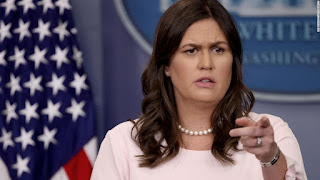Important Lessons as Fonterra Falters
"You haven't mentioned the dairy industry in this report, surely there is still potential for growth?"
Nana responded by explaining that his economic background caused him to be cautious about over-investing in any one industry. A strong investment portfolio, he believed, was one that had a broad mix of investments. If any one sector experienced a downturn in a mixed portfolio it could be compensated by growth in another. Nana questioned the wisdom of the dominance of dairying in the province and was reluctant to in promote further growth in this industry.
No one would dispute that Fonterra has been hugely successful and largely responsible for earning us the title "The Saudi Arabia of Milk", but our reliance on this single industry has become obsessive and potentially dangerous. Despite our dairy production increasing by 77% over the last 20 years, and Fonterra is the largest single dairy exporter, we actually produce a little over 2% of the total world milk production. Most countries do not rely on our milk alone.
What gives us an edge in the world food markets is our reputation of being clean and green and safe, and this perception has taken generations to establish. However, Fonterra and the National led Government have had a cavalier, gold rush mentality when growing the industry. The focus has been on increasing production above all else:
- Local body democracy was sidelined to ensure a water supply for dairy expansion in Canterbury.
- The Resource Management Act is being changed to allow increased development with reduced environmental scrutiny.
- Irrigation to support dairy expansion has become a major priority and $400 million has been committed to this.
As production has increased, and the money has poured in, there has been minimal regard for the environmental effects of the rapid growth and ensuring that our clean green image had some basis in fact. "Dirty Dairying" has become a commonly used label as the external effects of the industry became more apparent and the quantity of product has became more important than quality:
- Around 80% of our lowland rivers are now significantly polluted.
- The industry is operating at a level that is not locally sustainable with imported fertilizer being a major contributor to our trade deficit.
- Many farms can longer feed their herds on what they grow themselves and the amount of imported feed (1.6 million tonnes of palm kernel over the past year) is growing.
- Fonterra converts over 90% of its milk into powder and its largest plant, Edendale, powers its drier on lignite (one of the world's dirtiest fuels).
Fonterra has survived two earlier scares that threatened its reputation as a safe producer. The Chinese Melamine scandal involved the Chinese Sanlu Group, partly owned by Fonterra (43%), resulted in six infant deaths and 54,000 babies being hospitalised. The second scare was the revelation that traces of the nitrate inhibiting agrichemical DCD was found in Fonterra products. This third and latest scare, the discovery of botulism in a Fonterra whey product (used in infant formula), has been the most damaging. After three safety issues our reputation has taken some severe knocks and it is reasonable to imagine that there will be greater interest in how our industry operates and what supports our clean green brand.
I hope what has occurred will provide a useful wake up call to both the dairy industry and the Government. If we are truly going to establish a sustainable economy and strengthen our export potential we need to ensure our clean green brand is supported by reality and we do not continue to rely on a single industry to carry our economy. We need to invest in other sectors like grain and meat and fibre and ensure our environmental practices can withstand scrutiny. It will be interesting to see whether lessons have been learned or it will be business as usual.




Comments
For me, the over-reliance on agriculture and fear of contamination crisis's also contributes to a fearful political climate-
I can't imagine a more likely pre-cursor event to a serious dictatorial turn in New Zealand politics than a leader appearing promising safety and security from whatever it may be threatening to torch our agricultural economy like Foot and Mouth or something.
A base economy that is more self-sufficient would come from Green principles, while National and farmers (for the most part) are purely driven by profit.
The good of the society is NOT about the money we can get.
Yet it is the money that we use that is the worst problem of all.